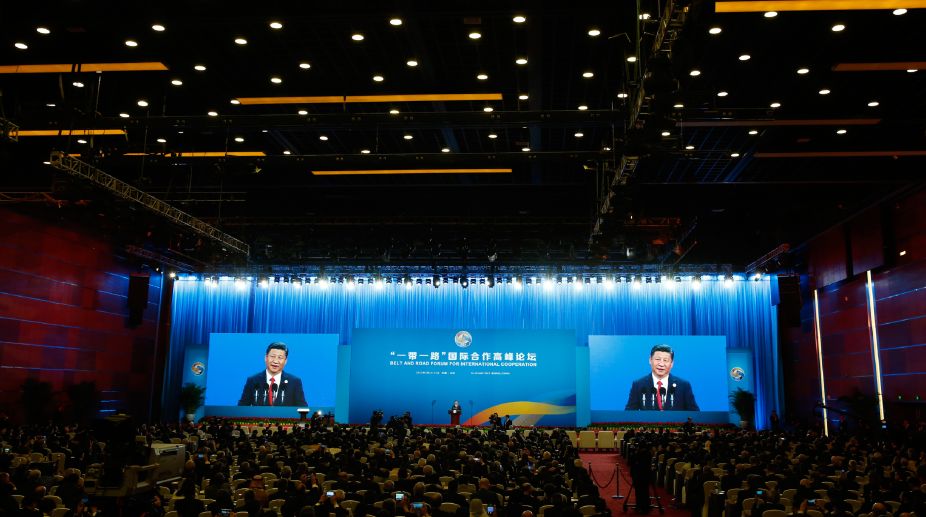Nothing to be alarmed about: Health Ministry on HMPV virus
The Ministry, however, appealed to the people to take precautions against all respiratory infections.

China's President Xi Jinping speaks at the opening ceremony of the Belt and Road Forum in Beijing (Photo: AFP)
It’s official now. India will not take part in the One Belt, One Road (OBOR) Summit being hosted by China from Sunday in the backdrop of sovereignty concerns raised by New Delhi over the China-Pakistan Economic Corridor (CPEC), one of the flagship projects of the signature initiative of President Xi Jinping.
‘’No country can accept a project that ignores its core concerns on sovereign and territorial integrity,’’ MEA spokesperson Gopal Baglay said in response to questions whether India would attend the two-day summit, being attended by Heads of State or Government from nearly 30 countries and top representatives from over 20 other nations.
The international community was well aware of India’s position on the ‘so-called’ CPEC, he said, in an obvious reference to New Delhi’s vehement opposition to the ambitious project on the ground that it runs through Pakistan occupied Kashmir (PoK).
Advertisement
The spokesperson said New Delhi was of the firm belief that connectivity initiatives must be based on good governance, rule of law, openness, transparency and equality. Among other things, connectivity projects must be pursued in a manner that respected sovereignty and territorial integrity, he added, while drawing attention to New Delhi’s own connectivity initiatives in the region.
Advertisement
The spokesperson said New Delhi had been urging China to engage in a meaningful dialogue on its OBOR initiative and was awaiting a positive response from Beijing.
By hosting the mega summit, China aspires to position itself as the driving force of the global economy in the 21st century by building ports, railways and power links connecting Asia, Africa and Europe.
China had extended an invite to Prime Minister Narendra Modi to participate in the summit in late March but Indian policy makers decided to wait and watch if Beijing would respond satisfactorily to New Delhi’s concerns.
However, China not only refused to pay heed to India’s concern over the CPEC but adopted a belligerent stand on other issues as well, particularly over the visit of Tibetan spiritual leader Dalai Lama to Arunachal Pradesh and subsequently renaming six places in the North-eastern state, which, Beijing claims, belongs to it.
Just last week, Chinese Ambassador to India Luo Zhaohui sought to placate India by suggesting changing the name of the CPEC. But within 48 hours, he was snubbed by Beijing which asked the Chinese Embassy in New Delhi to remove the sentence pertaining to the suggestion on renaming the CPEC from the transcript of the envoy’s speech posted on the mission’s website.
Even as it ignored New Delhi’s objections over the CPEC, China repeatedly asked it to attend the summit as India’s participation is crucial for Beijing to achieve its ambitions in South Asia under the OBOR initiative. Barring India and Bhutan, with which China has no diplomatic relations, all other South Asian nations are participating in the summit, with Pakistan being represented by Prime Minister Nawaz Sharif.
The summit will see high-level representations from Russia, South Korea, Germany, France, UK and other powerful nations. After hectic lobbying, China has also managed to rope in the United States and Japan, which were hitherto unwilling to attend it. However, none of the participating countries have sovereignty-related issues with the OBOR initiative.
Advertisement